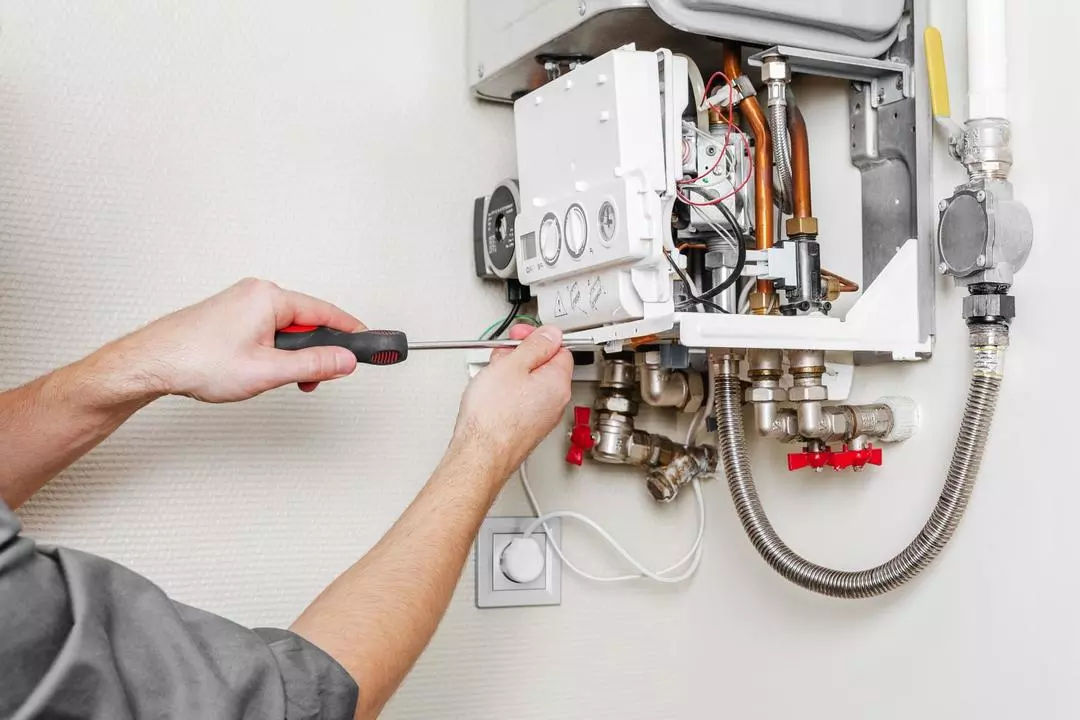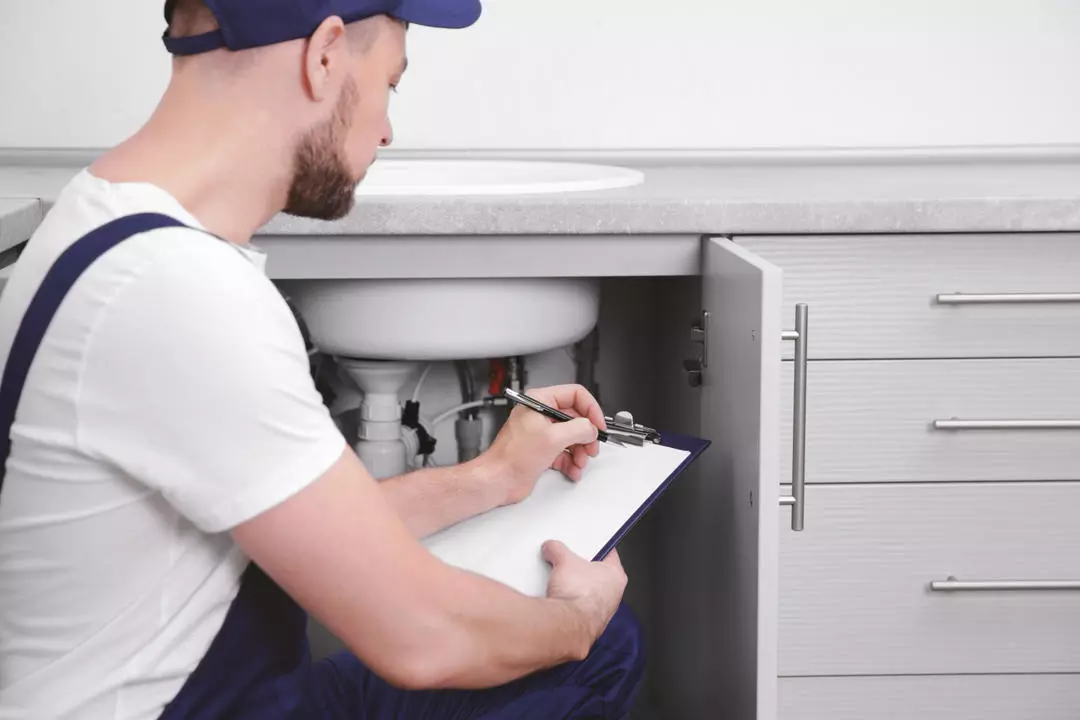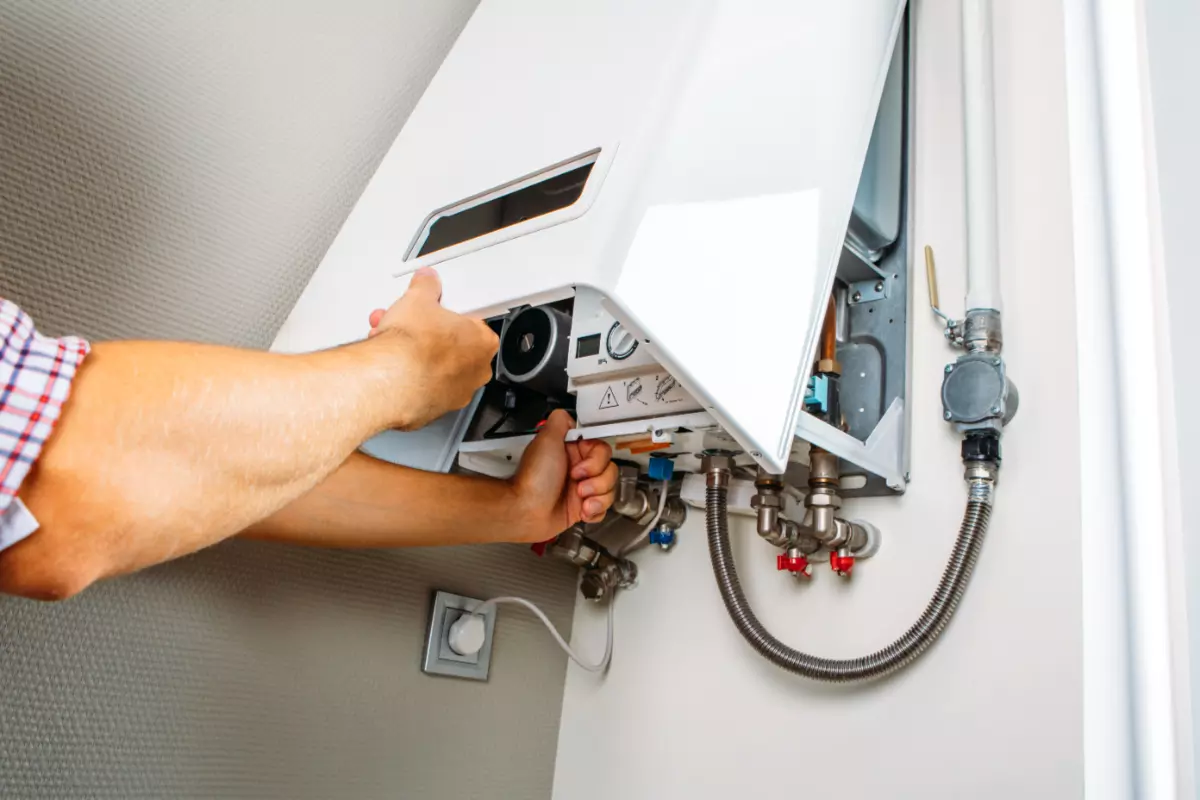Have you ben asking: When should I replace a boiler? We look at the problems of an older heating system which means that you need to update your heating with a new boiler installation.
When to Replace a Boiler?
In order to keep your energy costs down, you need a reliable boiler, since heating and hot water account for more than half of your monthly energy expenditures; any contemporary boiler, which is kept up-to-date, burns fuel efficiently, but some heat escapes in the hot gases that rise the chimney.
Modern boilers are more efficient than previous boilers for numerous reasons, but their major benefit is that they are 'condensing'. Condensing boilers collect more heat from exhaust flue gases and utilise it to heat central heating water, making them more efficient than earlier boilers.
Your boiler usually quietly burbles away in the background, heating your house and keeping your showers warm; as long as you're warm and comfy, you probably don't give it much consideration, but boilers, like most things, have a lifespan.
Undoubtedly, a new boiler is not cheap, but if your boiler keeps breaking down, you know how annoying and expensive this can be. Making the calculations to determine whether a new boiler would make you better off in the long run is worthwhile since the family is chilly and those breakdown expenses are mounting.
Boiler replacement is not a simple task, and there are several factors to consider before beginning; that is why knowing when to replace your boiler is vital.
Although your boiler may be in good working order, it is necessary to replace it after 10 to 15 years of operation; this is due to the fact that older appliances are often less efficient than newer, more environmentally friendly alternatives. Your old boiler may occasionally lose pressure and require internal component maintenance.
Furthermore, if you pay a lot of money to have your boiler fixed numerous times a year, you're probably wasting your money. Boilers should last up to 15 years without needing repairs; add to that energy inefficiency and increasing power bills, and you should know it's time to hire a boiler professional to replace your boiler.
One of the most crucial home technologies is your boiler, thus it needs to run efficiently all the time. An outdated boiler that hasn't been updated in a while could need to be replaced.
It is advised that you think about purchasing a new boiler if yours is older than 15 years. Over time, boilers have seen significant change. It could be worth investing in a brand-new one rather than buying new add-ons every week. Despite the fact that it seems like a large sum of money, you will ultimately save money. You may enjoy your life without being concerned about a broken boiler thanks to contemporary technology and improved energy efficiency.
In other words, an A-rated boiler will cost you less money than a G-rated boiler. This is due to the system's inherent inefficiency caused by the water heating process taking too long. Investing in an A-rated boiler is advantageous for the environment and will save energy costs. Therefore, making the appropriate choice requires knowing boiler efficiency ratings.

How Often Should a Boiler Be Replaced?
The average boiler has a lifespan of roughly 15 years, and while proper maintenance may extend it, an older boiler takes more work to heat your home.
Due to the lower energy efficiency and the possibility of safety problems, replacing your boiler may cost you extra money.
Signs of a Broken or Faulty Boiler:
Leaking Boiler
Your boiler may begin to leak in a variety of locations. To truly isolate the issue, you must first determine where your boiler is leaking and whether a leaky boiler is an emergency.
A faulty component inside the boiler is the most typical cause of a leaky boiler. It is possible that the pump seal or pressure valve has been broken. If the pressure valve is the cause, your boiler pressure may be too high. If it's the pump, it might simply be worn out from regular or heavy use over time.
Low Boiler Pressure
A new pressure valve may be required, and radiator bleeding, water leaks, and other problems can all contribute to low boiler pressure. The boiler's pressure may be easily checked - to check the pressure, use the on-site pressure gauge. If the needle value is less than one, there can be an issue that has to be fixed. After repressurising your system, if you still experience pressure loss, consult a professional to determine the cause.
Banging Or Gurgling Noises
The most common causes of excessive radiator or system sounds are air or inadequate water pressure. Failure of the pump, particularly in older systems, may also be to blame.
The sound itself may occasionally serve as a trouble signal, for instance, bleeding your radiators might fix the issue if the noise is a gurgling. It may be a clue that the heating components are malfunctioning if the system is humming or vibrating; this implies that there is a problem.
Issues With Your Thermostat
You could need a new thermostat if your current one is losing accuracy or turning on or off by itself without your involvement. The boiler itself shouldn't be the source of this issue. However, you might want to get it tested just to be sure.

Unusual Noises

Low Pressure
How much does a Boiler Cost?
Given that the installation of the boiler significantly contributes to the variability, you'll need to conduct your homework since installation costs can fluctuate greatly for a variety of reasons, and each business will charge differently. The typical cost of a new boiler, which often varies between £500 and £3,000, as well as the typical cost for installation, which typically ranges between £650 and £2,500, are between £1,150 to £5,500.
The boiler may be simply removed with little modification to the pipes and connections thanks to installations at the lower end of this price range, which often feature a like-for-like boiler switch. The most expensive boiler replacement prices apply to complicated installations when a new kind of boiler is installed, the old boiler cannot be removed easily, piping needs to be altered or changed, or the boiler is being relocated.
What to Consider When Replacing your Boiler:
The obvious one is that the cost of a new boiler is far more than the cost of replacing a single component. However, if you keep replacing components as they fail, you'll end up paying far more than the total cost of a new boiler.
Unlike your old boiler, a new one is going to be much more reliable; with upgraded smart technology as well as "A" rated efficiency - a brand new boiler will be a worthwhile investment.
It is imperative that you do not try to install a new boiler or remove an old boiler on your own. For the job, only an engineer who is Gas Safe Registered should be employed. There are many experts who will try to suggest boiler types and models that will benefit them rather than you.
The efficiency of a new boiler will always be higher than an old one. Thankfully, new boilers constructed nowadays are required to have an efficiency rating of "A". This indicates that a 90% efficiency rating for your boiler is to be expected.
Boiler Installation Costs
The cost of installing a boiler includes both the boiler's purchase and installation expenses; the cost of a solitary boiler plus the cost of labour and materials make up the majority of boiler installation expenses - boiler installation often costs between £2,000 and £5,000 overall.
Given that there is a substantial variance of several thousand pounds across the range of boiler fitting costs, it is crucial to understand the exact aspects that go into those costs.
For two reasons, boiler type influences installation costs. First, the cost of a solitary boiler varies depending on its kind, with conventional boilers generally costing the most and combination boilers often costing the least.
Second, compared to system and normal boilers, combination boilers are less expensive to install since they don't need water feeder tanks and hot water cylinders.
Fuel used in boilers has an impact on labour and material expenses as well as standalone prices; compared to LPG and oil boilers with the same heating capacity, standalone gas and electric boilers are more affordable.
Additionally, gas and electric boilers save money on labour and materials since they don't need additional pipes to connect to hot water cylinders or feeder tanks.Premium-brand boilers are more expensive than ones made by budget-friendly companies.
Every manufacturer offers a selection of models to accommodate practically any budget, and different boiler installers have different labour rates - compared to local, and regional businesses or internet installation providers, national enterprises are often the more expensive option for boiler installation.
In conclusion, the cost of installing a boiler is determined by both your choices - such as the kind of boiler and accessories - and external factors - such as location.
By being aware of all these factors, you can select the option that best satisfies your needs and budgetary restrictions.Additionally, the kind of fuel has an impact on the cost of the boiler for two reasons: first, different fuels require various burner and heat exchanger systems, each of which has a different cost.
Second, because of the economies of scale, boilers that use well-liked and generally accessible fuels are more likely to be mass-produced and have lower prices.Boilers that use natural gas and are connected to the public gas grid are the most affordable.
In the UK, gas boilers are by far the most prevalent kind, and because of their mass manufacture, consumer costs are cheaper. Although LPG boilers are a little more expensive, many gas boiler models also have LPG conversion kits (at an added cost).
However, if you purchase an LPG boiler, you will also need to buy or rent an LPG tank to store the liquid fuel, which will increase the cost of your boiler installation overall.Since they have bigger, more sophisticated heating systems and restricted production, oil boilers are more expensive than gas or LPG boilers - storage tanks for heating oil are necessary for oil boilers, which raises the price of boiler installation.
Electric boilers often cost less than oil or LPG boilers and are priced similarly to their gas-powered counterparts; since they have few moving parts and an easy-to-understand heating system, electric boilers are inexpensive. The most costly boilers are those that run on biomass fuels (such as wood pellets, chips, or logs). They have massive, sophisticated heating mechanisms and fuel feeding systems, as well as a fuel storage container.
When it comes to professional gas engineers, we're the experts to come to. Here at Cardiff Gas Services, we only employ and provide the best heating engineers in the game. We offer Gas Safe boiler installation, repair and servicing throughout Cardiff.



